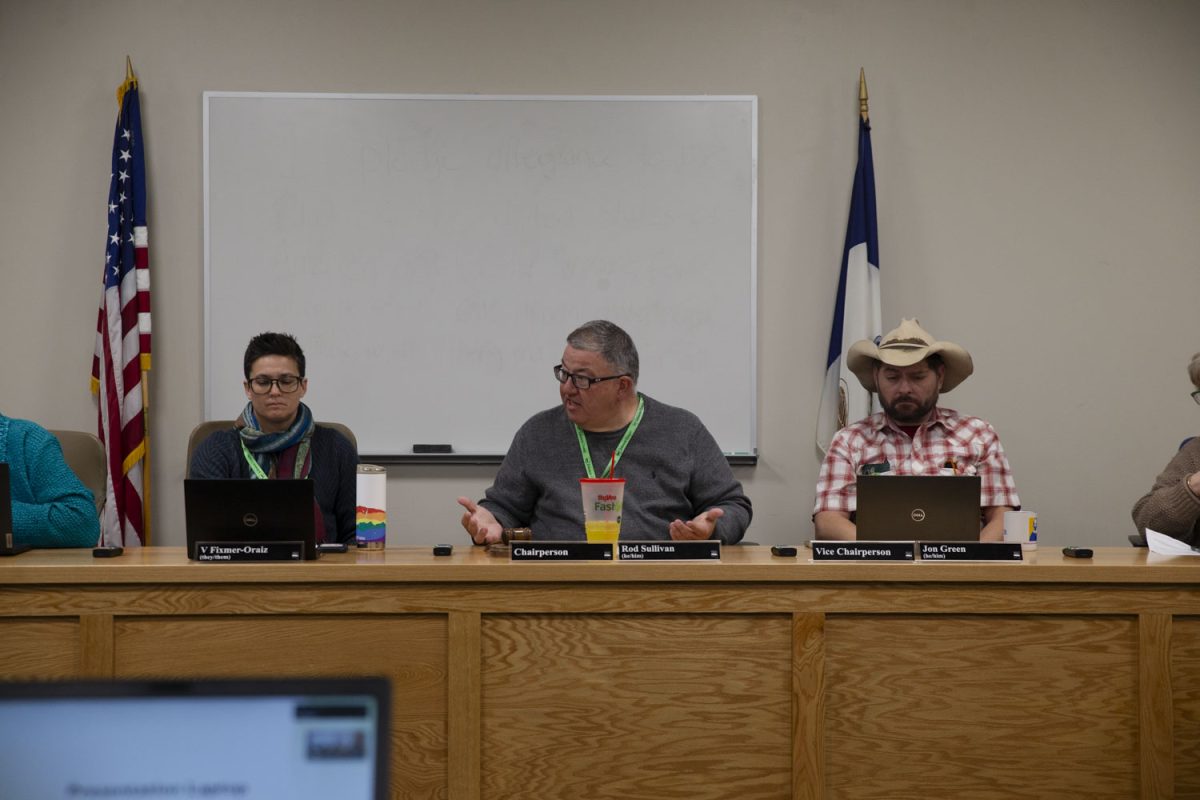People on the University of Iowa campus are likely to see an increase in parking fees this year, and officials say the hike is necessary to keep up with recent campus construction and daily maintenance.
“Parking and transportation are self-supporting enterprises,” said Dave Ricketts, the director of UI Parking and Transportation. “It doesn’t receive state funding, and parking is more expensive to construct than people think.”
Storage permits for students will increase $18 from $315 to $333. Standard and cashiered ramps, such as the IMU ramp and the Main Library lot will increase by 10 cents per hour, with the daily maximum increasing from $17 to $18. There are several other increases pending as well.
The state Board of Regents will decide whether to pass the fee increase at its meeting in Ames on Wednesday.
The proposed increase would fund the maintenance of structures, along with paying operators in parking ramps. The UI earned roughly $16.7 million from parking in fiscal 2012, and officials estimate the UI will earn roughly $16.8 million in fiscal 2013 and $17.7 million in fiscal 2014.
Roughly $460,000 of this budget comes from fees each year. Officials say that as the UI increases efforts to police parking violations, the number of incidents decreases.
Among the construction projects that will benefit from the increase is the demolition of hospital ramp 2 at the UI Hospitals & Clinics, which will be replaced by a 650-space underground parking garage. Officials estimate this project to be completed in 2015. Additionally, the UI has also covered roughly 1,400 parking spaces with LED lighting to replace older lighting.
The UI Parking and Transportation Committee reapproved the proposed increases this past year. The committee, composed of students, faulty, and staff, devised a five-year plan to increase rates in order to aid the budget. Fines will remain at their current levels.
This increase will be the third in the five-year set. The increases will go into effect on different dates depending on the location, varying from July 1 to August 1.
“The department brought that to us, and we agreed in comparing fines with the Big Ten universities and other Iowa universities,” said Ray Haas, a member of the UI Parking and Transportation Committee.
The UI purchases parking passes from Iowa City to resell to students for a reduced cost. When the city increases the price of those passes, the university must also increase its reduced cost in order to keep the two prices comparable.
Iowa City raised its university semester bus passes from $80 to $100 this year after more than a decade-long stable rate.
“Most of [the reason for the increase] is because we haven’t had a rate increase in 16 years,” said Chris O’Brien, the director of transportation services in Iowa City.
Despite these increases, parking at the UI differs from its regent and conference counterparts.
Iowa State University earned $3.7 million in revenue from parking during fiscal 2012, and the University of Northern Iowa earned $1.2 million during the previous fiscal year.
Severity of fees varies among Big Ten schools as well. The UI has a $200 fine for parking in a handicap zone without a permit, while the University of Nebraska-Lincoln charges $150.
Institutions such as the University of Illinois and Ohio State carry heftier fines, with the same citation costing $250 at each school.
One UI student said although she does not think the increase makes a huge difference she said she wants to know what the extra money will go towards before she decides whether the fee increase is appropriate.
“I don’t think it’s necessarily that big of a deal,” freshman Marina Phillips said. “The extra might be worth it if it got an extra bus route out [to the Hawk Lot] sooner.”
The rates will continue to increase for an additional two fiscal years until the five-year plan is completed.
“Demand from students is down, and parking demand is down, but just owning a car on campus is more expensive,” Ricketts said.






